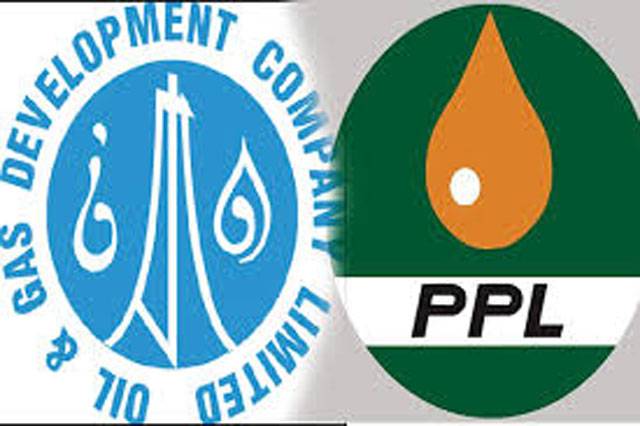ISLAMABAD - The Pakistan Petroleum Limited (PPL) and Oil & Gas Development Company Limited (OGDCL) on Thursday expressed reservations over the economic feasibility of shale pilot project in view of low oil prices and high exploration, drilling and production cost.
“Both the companies are reluctant to start the shale pilot projects but we are pressurising them to undertake the exploration,” said Directorate General Petroleum Concessions (DGPC) Director General Qazi Muhammad Saleem while responding to a question during the Pakistan Oil and Gas Conference 2017. The conference on the topic of "Emerging fuel mix for Pakistan and marketing outlook" was organised by Petroleum Institute of Pakistan (PIP).
In his presentation about the prospects of shale gas exploration, the DG said that USAID study recommended undertaking pilot projects to determine the exploitability of these huge shale gas resources and conversion of the resource to reserves. Although a technical committee, comprising professionals from OGDCL, PPL and DGPC has already finalised location for the pilot projects, he said. The pilot project will help to determine and confirm actual productivity of shale gas reservoirs to chalk out the conceptual commercialisation and muster the required technologies for the development of these strategic assets, he added.
Both PPL and OGDCL have their reservations about the economic feasibility of pilot project in view of low oil prices and high cost of exploration, drilling and production. Replying a query, that China which has so many resources and a have reserves of 1000 trillion tons but they are not talking so much about shale gas and why Pakistan is after the gas, official of the DGPC informed that china has already explored 4 BCFD of shale gas. Currently the US is number one in shale gas as it is cheaper over there. “The reason for cheaper exploration in the US is the availability of the technology which we don’t have,” he added.
The director general further said that based on technically recoverable shale gas reserves index, Pakistan ranking has gone up to number 17 while India is ranked number 19.
Earlier in his inaugural session, Prime Minister Shahid Khaqan Abbasi said loadshedding of gas for all consumers was a thing of the past, while that for electricity would soon end. He said that it was unfortunate that the industry has failed to come up with solid objective solutions, adding that adhoc solutions were no answer. Instead, he said, it was the government that was coming up with solutions. He said the import of Liquefied Natural Gas (LNG) has helped the country adequately to meet its energy needs, and asked for objective intellectual input for optimal use of renewable sources of energy.
The prime minister said that when the government came into power it faced a plethora of challenges including severe shortage of electricity, gas and Compressed Natural Gas (CNG) for the transport sector. He said today with the import of LNG the country has exported 700,000 tons fertiliser, whereas earlier it imported a million tons. The country would soon have three LNG terminals that would pump gas across the country and help meet the future needs of its domestic and industrial users, he maintained.
"Today things are moving forward. We have new reserves, oil production has increased to 100,000 barrels per day, which was substantial, but still not enough," the prime minister said. He said Pakistan was the only country that was using RON-87 type of fuel, and it took an effort to convince the industry to switch over to the higher Euro grade RON-92 which was being used across the world. Similarly, the country switched to Euro-II Diesel that was less damaging for the environment and like the CNG has been de-regulated.
He said two oil refineries of 250,000 barrels per day capacity were operational in the South and Central Pakistan, while plans were afoot to pump petrol and diesel upcountry through pipeline while cutting down on the cost and precious time through road transportation. He said the oil tankers would continue to provide service for further distribution across the country.
He said the Turkmenistan Afghanistan Pakistan India (TAPI) was finally taking shape and would be operational in around four years, while the Iran Pakistan gas pipeline was stuck up due to international sanctions. The prime minister said that provision of natural gas was critical for Pakistan and was the cheapest mode for power generation. He said he has directed to put an end to the use of diesel for power generation as it was way too expensive. He said the world has also stopped the use of furnace oil, while Pakistan was still using it to produce 8,500MW electricity.
He said Pakistan was also using imported coal to some extent for power generation, while it would take a while before it could use the Thar coal. He said the cost of power generation through wind and solar was lowering; however, there was a need more studies for its optimal use.
Earlier, the prime minister launched the Pakistan Energy Outlook 2017, that has been produced in collaboration with the NED University and provides an overview of the country's energy sector and the changing energy mix over the next 15 years.
Petroleum Institute of Pakistan Chairman Georgio Guidi, of the NED University Vice Chancellor Professor Dr Sarosh Hashmat and PIP CEO Asim Murtaza also talked about the need for development of seamless linkages between the university and the industry, the need for optimally exploiting renewable energy and strategies to find a way forward for an ideal fuel mix to meet the country's future needs.






